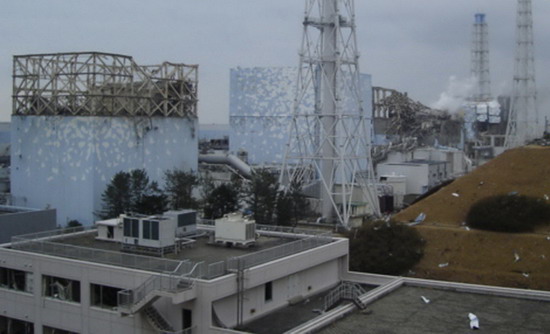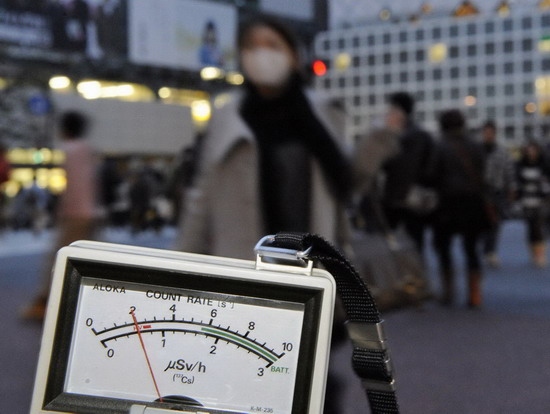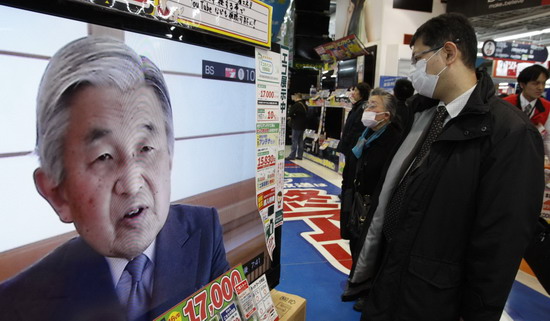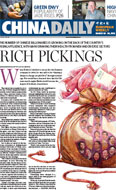Asia
Mistakes, misfortune, meltdown: Japan's quake
Updated: 2011-03-18 11:36
(Agencies)
|
|
A RARE ADDRESS
Tuesday brought worse news: blasts in two of the reactors and a fire in a third at Fukushima as water levels in a pool used to store spent fuel dropped sharply. Radiation levels in the plant soared so high at one point that workers were pulled out of the control room.
Little is known about the skeletal crew that has battled to bring the plant under control. Even Japanese media have not identified any of the 200 or so workers involved.
"What is clear is that those working there are receiving radiation and should be treated as heroes," Javier Dies, head of nuclear engineering at the Polytechnic University of Catalonia in Barcelona told Reuters.
The sense of dread grew almost by the hour. In Tokyo on Tuesday, radiation levels shot to 10 times normal levels, a worrying elevation if not yet a level that would cause acute radiation problems.
|
|
Prime Minister Naoto Kan appeared in a televised news briefing to urge people living up to 30 km (19 miles) from the reactor to stay indoors. The Bank of Japan pumped eight trillion yen ($102 billion) into the jittery financial system after a record 15 trillion yen injection on Monday.
As bulldozers begin clearing an emergency route to the Fukushima nuclear plant to allow access for fire trucks, the country's reclusive Emperor Akihito delivered a rare address to the Japanese people, offering his concern about the scale of the crisis. In his televised Wednesday statement Akihito said he was deeply worried and asked people to treat each other with "compassion" during a crisis he called "unprecedented in scale."
Coming in a week of mass evacuations and dwindling food on store shelves, the emperor's address reminded older Japanese of the end of World War Two when a recorded message from Akihito's father had marked the surrender.
Though the sense of helplessness is hardly as profound as it was then, the impact of last week's disaster is already profound. After the Kobe earthquake in 1995, Japan refused offers of help from the United States. This time around, Tokyo welcomed offers of help early. On the day Akihito made his address, the government even said it might have to seek direct US military intervention in the crisis.
|
|
E-paper
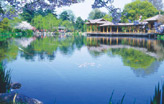
City of Joy
Welcome to the 'world of smiles' where life meanders slowly.
Debate on nuclear power revived
The future is now
Common approach
Specials

Earthquake Hits Japan
A massive 8.8 magnitude quake hit the northeast coast of Japan on March 11,2011.

NPC & CPPCC sessions
Lawmakers and political advisers gather in Beijing to discuss major issues.

Slide: Japan quake
Devastating earthquake and tsunami left millions without water, electricity, homes or heat.
